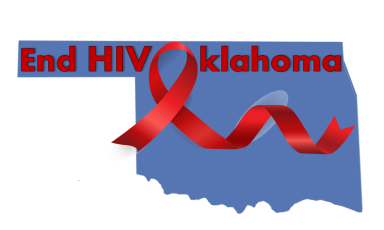HealthCare Provider Resources
Below are resources meant to assist healthcare providers to address HIV in their communities for their patients.
The provider is responsible for ensuring the accuracy of the information before providing treatment.
For Assistance: Contact the End HIV OK hotline at 888-###-####
Post-Exposure Prophylaxis
(nPEP)
Post Exposure Prophylaxis (nPEP) is provided for individuals who may have been exposed to HIV and can get the first dose of medication within 72 hours after the event. Below you will find resources to assist you in providing emergency nPEP. You can always talk to a local provider for assistance by calling our hotline at 888-###-####.
- Evaluate exposures promptly and initiate nPEP as soon as possible after exposure.
- Do not delay nPEP pending HIV test results or source person risk factor assessment.
- Prescribe three-drug nPEP regimens for 28 days
- Connect to follow up treatment in 28 days with a provider who is proficient in providing PrEP and other follow testing for HIV and other STI's and treatment.
Oklahoma Statewide Protocol
CDC Guidelines (Includes algorithm and medications)
Video on nPEP (24 minutes)
Pre-Exposure Prophylaxis
(PrEP)
Pre-Exposure Prophylaxis (PrEP) is provided for patients who are in a period in their life where they are at risk for HIV exposure. That might include:
- Have a sexual partner with HIV.
- Have sex without using condoms.
- Have been diagnosed with a sexually transmitted disease in the last six months.
- Inject drugs with someone who has HIV.
- Inject drugs by sharing needles or syringes.
- Men who have sex with men (MSM)
- Sex workers
- Have bi-sexual encounters with men
Guidelines for Prescribing PrEP
HIV Treatment
Rapid initiation of HIV treatment for patients who are newly diagnosed is important for the mental wellbeing of the patient and research has shown that the sooner that a person starts HIV treatment the longer they will remain on treatment and the sooner they will be virally suppressed so they cannot expose anyone else to the virus. See the network of providers that can quickly initiate HIV therapies.
HIV has become a chronic condition and managed by many primary care providers because very few patients with the condition require the services of an infectious disease specialist. The treatment is fairly straightforward, not as complicated as in the past, and the medications have improved. See the guidelines below for to help manage your patients.
Other Helpful Links
End HIV Oklahoma is a non-profit organization dedicated to ending the epidemic of HIV in Oklahoma. Through our programs and funding, we strive to provide support, education, and resources to individuals affected by HIV and AIDS.
©Copyright 2024. All rights reserved.
We need your consent to load the translations
We use a third-party service to translate the website content that may collect data about your activity. Please review the details in the privacy policy and accept the service to view the translations.
